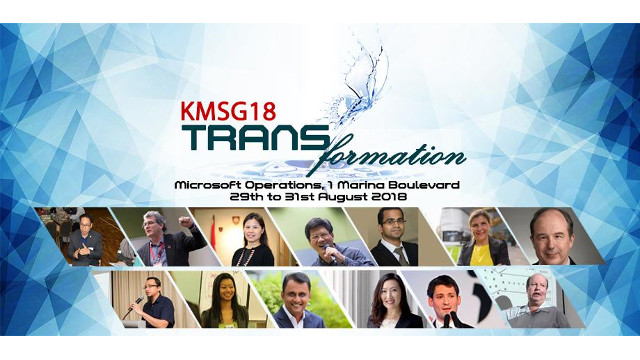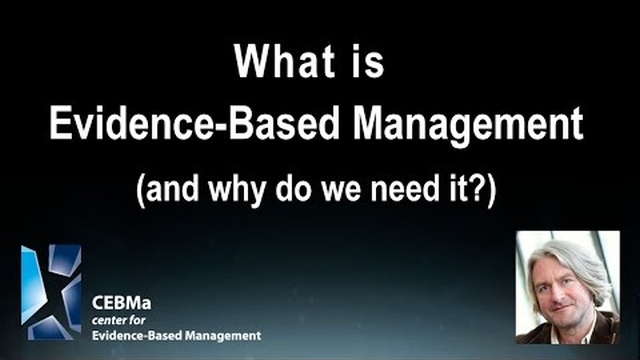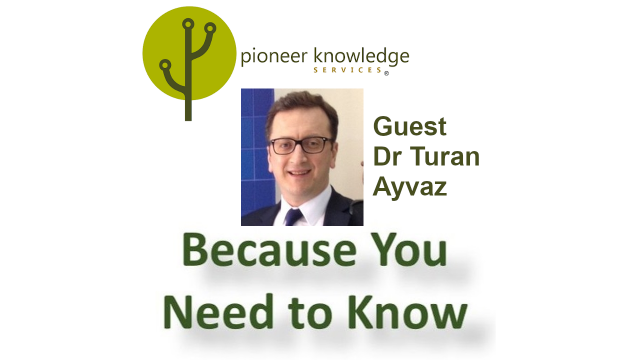
Implications for the knowledge management discipline from a review of scientometric research
Prominent knowledge management (KM) researcher Alexander Serenko recently published the findings of a structured literature review1 of scientometric research of the KM discipline for the 2012–2019 time period. This 2021 study updates his 2013 review of the KM discipline.
From the review findings, Serenko lists a series of implications for the KM discipline. I featured one of the most significant of these implications in a previous article, and now in this current article, I provide the full list of implications with some further commentary.
Serenko advises that scientometrics is a science about science – a systematic approach to exploring the past, present, and future directions of a scholarly domain. Scientometric studies help scholars to better understand the idiosyncrasies and identity of their discipline, and inform and educate internal and external stakeholders on the discipline’s state-of-the-art and any needed corrective actions.
Serenko also alerts to the value of his review, given that stakeholders may find it very challenging to locate and critically analyze and use the body of knowledge documented in the large volume of somewhat disparate scientometric KM publications.
Implication #1: Scholars should realize that the KM discipline may successfully exist as a cluster of divergent schools of thought under an overarching KM umbrella and that the notion of intradisciplinary cohesion and consistency should be abandoned.
For an exploration of what Implication #1 might mean for KM practitioners, see my previous article.
Implication #2: A recent decline in the overall volume of yearly KM publications reported by scientometric KM studies does not signify a diminished interest in the discipline.
Serenko advises that there are two reasons for this. Firstly, KM topics have been increasingly incorporated in publications in other scientific domains, so it is difficult to distinguish between a “KM” and a “non-KM” paper and decide whether to count it as a part of KM research. In particular, there has been a growing interest in niche KM topics that intersect with other management domains, for instance, innovation. Secondly, most studies measuring the volume of KM research use “knowledge management” as a major keyword. In doing so, they miss a large number of relevant KM papers because a growing number of KM publications omit the phrase “knowledge management” in their titles, abstracts, and keywords.
Implication #3: Journal of Knowledge Management is unanimously recognized as the discipline’s leading publication forum.
Although identified by Serenko and Serenko and Bontis2 as the leading KM journal, the Journal of Knowledge Management is not an open access journal, which seriously limits its usefulness to KM practitioners. If the Journal of Knowledge Management is to be the leading publication for both KM researchers and KM practitioners, then it must transition to full open access.
Implication #4: KM researchers should not limit their interest to the body of knowledge documented in the KM-centric sources.
Serenko advises that the KM body of knowledge is documented and preserved in both KM-centric and non-KM-centric journals and conference proceedings. A large share of KM works is also preserved in outlets catering to other disciplines. Recognising this, we use a wide range of academic literature including from other disciplines in the preparation of RealKM Magazine articles.
Implication #5: It is important to understand why so many researchers publish only a single KM work.
More than 80% of KM authors publish only a single KM paper, which Serenko alerts is a truly disturbing sign, so he states that it is critical to understand why this phenomenon takes place.
Implication #6: The top six most productive countries are the USA, the UK, Taiwan, Canada, Australia, and China.
Serenko advises that these locations3 have achieved a high standard of living or are well on the way towards this, and that the evidence suggests that KM research activity is directly linked to a country’s economic prosperity. He states that this highlights the relationship between knowledge and wealth, which is a significant issue that needs to be considered and potentially debated as part of progressing the decolonisation of knowledge.
Implication #7: KM scholars should continue increasing their research collaboration.
Serenko advises that while KM scholars have improved their collaboration behavior, only a few leading KM scholars have developed extensive collaborative networks, and collaborative efforts rarely cross international borders. He states that expanded national and international collaboration would bring many benefits for KM research, and that strong, well-developed collaborative networks serve as a sign of disciplinary maturity. However, Serenko also states that international collaboration would “infuse the latest academic knowledge into the knowledge base of developing countries.” Disturbingly, this represents the continuation of colonial thinking in KM.
Implication #8: There is life beyond case studies, surveys and interviews as research methods.
Serenko advises that in the early days of KM research, case studies, surveys and interviews represented the most common empirical approaches, but that this trend has continued well beyond what is appropriate or desirable. He states that KM researchers need to much more extensively use other methods of inquiry which are dramatically under-represented in KM research – for example, action research, laboratory experiments, design science, ethnography, field studies, field experiments, mixed-methods, and the use of secondary data – and that journal editors and reviewers should welcome these submissions. Serenko’s recommendations in this regard align with the recommendations of RealKM’s Stephen Bounds, for example as he discusses in the articles Critical Eye: Workplace Knowledge Flows and Towards a clinical approach to knowledge management.
Implication #9: There is a need for knowledge brokers that may deliver the KM academic body of knowledge to practitioners.
Serenko states that it is obvious that the direct knowledge dissemination channel – which assumes that practitioners directly access, read, and benefit from academic publications – does not function. In response, he advises that the solution should include “the introduction of formal and informal positions of knowledge brokers who aggregate, summarize and deliver the academic knowledge … to busy practitioners in an easy-to-comprehend format.” Not only is this the founding objective of RealKM Magazine, but we have also published research synthesis and analysis in regard to knowledge brokers. It also needs to be noted that, as stated under Implication #3 above, if KM practitioners are to more fully benefit from KM research, then KM academic journals must transition to full open access.
Implication #10: The KM discipline has been progressing well toward maturity and recognition, but it has been a bumpy ride.
Serenko states that while inconsistencies were reported in regard to the state of the KM discipline in the findings of the 175 scientometric studies analyzed in his investigation, it is evident that KM is not a management fad and, as a discipline, has gained recognition within the broader scientific community. He advises that most importantly, there are signs that KM has started infusing knowledge into other disciplines, and KM topics are appearing in non-KM-centric management and even non-management journals. He predicts that in the future, it is likely that KM will undergo a further transformation process on its bumpy ride toward full academic maturity.
Header image source: Review by Nick Youngson, Alpha Stock Images, CC BY-SA 3.0.
References and notes:
- Serenko, A. (2021). A structured literature review of scientometric research of the knowledge management discipline: a 2021 update. Journal of Knowledge Management, 25(8), 1889-1925. ↩
- Serenko, A., & Bontis, N. (2017). Global ranking of knowledge management and intellectual capital academic journals: 2017 update. Journal of Knowledge Management. ↩
- Serenko’s assertion that Taiwan is a country is not supported by many countries worldwide, including RealKM’s home country Australia. The Australian Government Department of Foreign Affairs and Trade (DFAT) states that “Australia adheres to its one-China policy, which means we do not recognize Taiwan as a country.” ↩
Also published on Medium.







Thanks Bruce,
This completely aligns with my own experience of the evolution of KM over the past 30 years. My last remaining PhD candidate has just submitted a paper citing the earlier Serenko article, highlighting why there is a dearth of KM in hospitality and tourism. He is however authoring KM articles in that area to fill this gap.
I am hopeful that the KMGN KM Global Network will start to enable decolonize KM by providing a visible community of genuine sharers/collaborators who lead and mentor more widely in this important discipline.
Thanks Arthur for your comment, great to hear that your PhD student is following up on the issues that have been identified in Serenko’s reviews.
In regard to the decolonisation of KM, that’s already well underway through the leadership and efforts of KM4Dev and RealKM. This work and research is documented in the RealKM Magazine series on decolonising KM. The following articles and knowledge cafés offer particularly important perspectives and insights:
I hope that KMGN could also assist the decolonisation of KM, but it will require doing much more than just sharing, collaboration, and mentoring. Active reflection on current KM practice to be able to identify and address cultural assumptions and biases is also needed, as RealKM and KM4Dev have been doing as part of their action plan development. As an example of how this reflection could be applied, the recent KMGN KM Advanced Methodologies course included a session focused only on ISO30401 when 20% of the world’s population uses other KM and KM systems standards.
I would also encourage KMGN to engage with and learn from the knowledge that KM4Dev and RealKM have already captured and generated in regard to the decolonisation of KM, rather than reinventing the wheel.